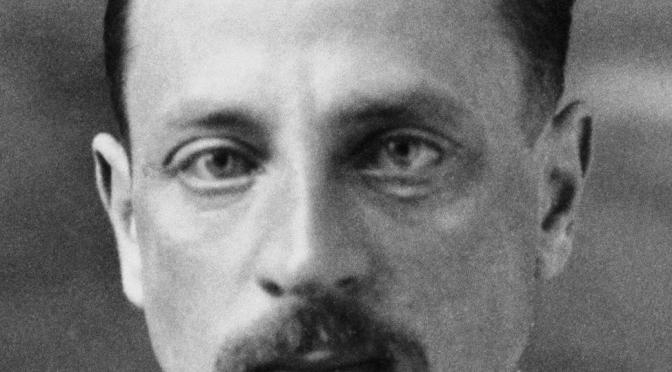Not wooing, no longer shall wooing, voice that has outgrown it,
be the nature of your cry; but instead, you would cry out as
purely as a bird
when the quickly ascending season lifts him up, nearly forgetting
that he is a suffering creature and not just a single heart
being flung into brightness, into the intimate skies. Just like him
you would be wooing, not any less purely—, so that, still
unseen, she would sense you, the silent lover in whom a reply
slowly awakens and, as she hears you, grows warm,—
the ardent companion to your own most daring emotion.
Oh and springtime would hold it—, everywhere it would echo
the song of annunciation. First the small
questioning notes intensified all around
by the sheltering silence of a pure, affirmative day.
Then up the stairs, up the stairway of calls, to the dreamed-of
temple of the future—; and then the trill, like a fountain
which, in its rising jet, already anticipates its fall
in a game of promises…. And still ahead: summer.
Not only all the dawns of summer—, not only
how they change themselves into day and shine with beginning.
Not only the days, so tender around flowers and, above,
around the patterned treetops, so strong, so intense.
Not only the reverence of all these unfolded powers,
not only the pathways, not only the meadows at sunset,
not only, after a late storm, the deep-breathing freshness,
not only approaching sleep, and a premonition …
but also the nights! But also the lofty summer
nights, and the stars as well, the stars of the earth.
Oh to be dead at last and know them endlessly,
all the stars: for how, how could we ever forget them!
Look, I was calling for my lover. But not just she
would come … Out of their fragile graves
girls would arise and gather … For how could I limit
the call, once I called it? These unripe spirits keep seeking
the earth.—Children, one earthly Thing
truly experienced, even once, is enough for a lifetime.
Don’t think that fate is more than the density of childhood;
how often you outdistanced the man you loved, breathing,
breathing
after the blissful chase, and passed on into freedom.
Truly being here is glorious. Even you knew it,
you girls who seemed to be lost, to go under—, in the filthiest
streets of the city, festering there, or wide open
for garbage. For each of you had an hour, or perhaps
not even an hour, a barely measurable time
between two moments—, when you were granted a sense
of being. Everything. Your veins flowed with being.
But we can so easily forget what our laughing neighbor
neither confirms nor envies. We want to display it,
to make it visible, though even the most visible happiness
can’t reveal itself to us until we transform it, within…
Rainer M. Rilke by Stephen Mitchell

